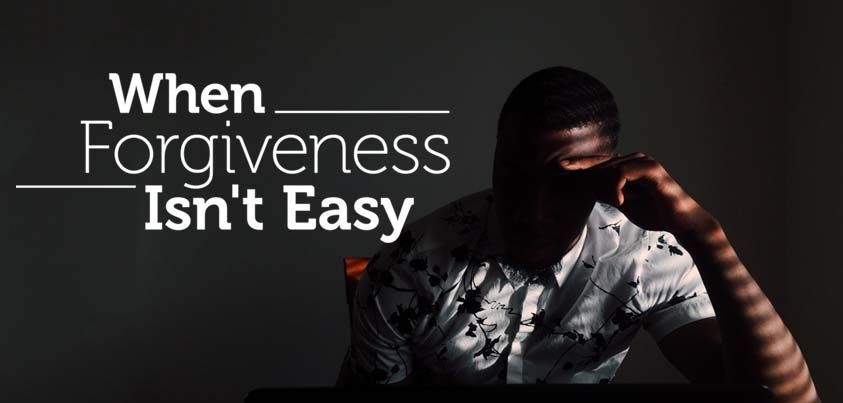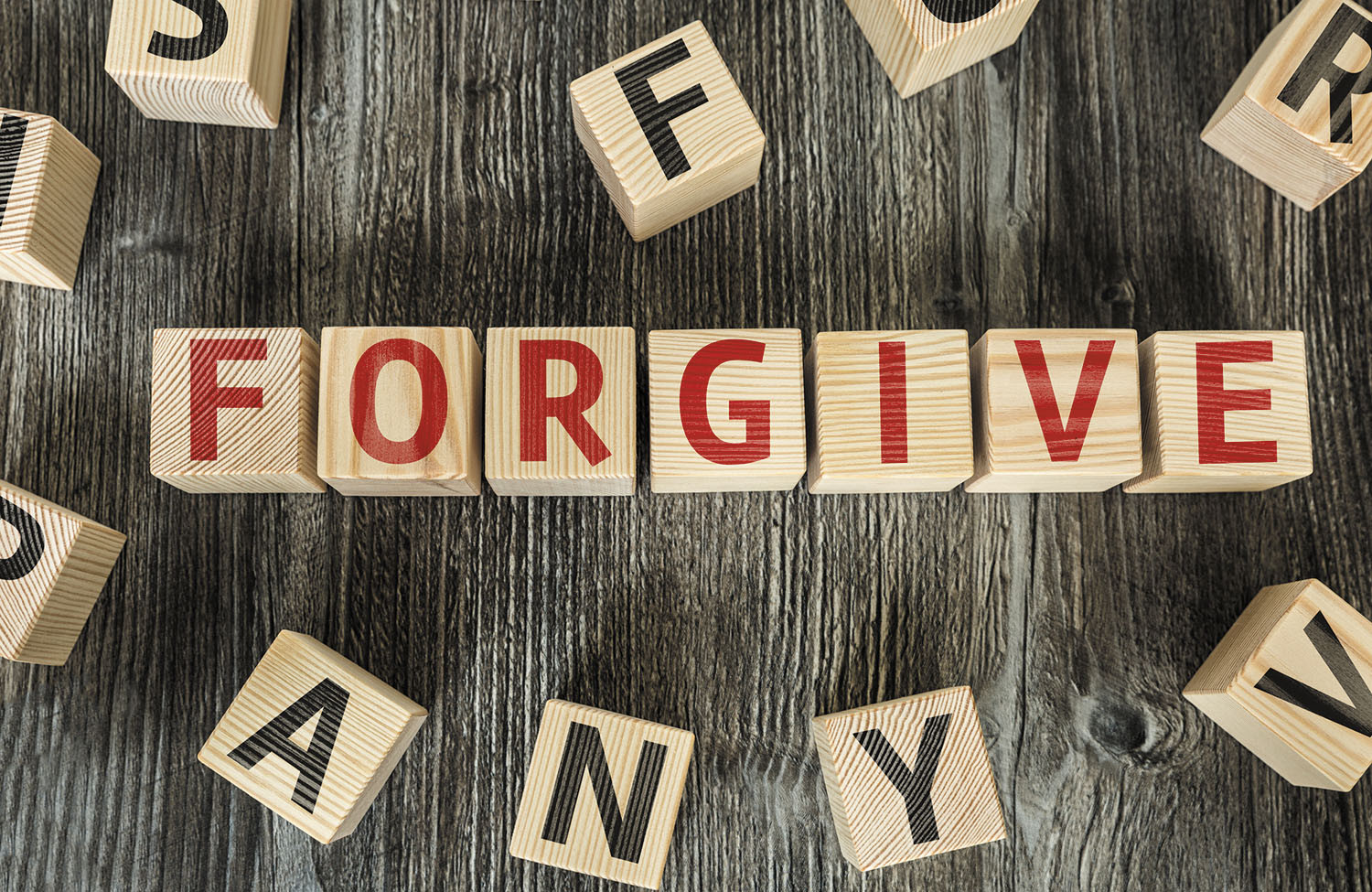Forgiveness is a complex and challenging process that requires a great deal of inner strength and courage. Letting go of resentment and anger towards someone who has hurt us is never easy, as it often involves facing painful emotions and accepting vulnerability. However, despite the difficulty of forgiveness, it can be a truly liberating experience. When we choose to forgive, we release ourselves from the burden of carrying around negative emotions and grudges.
By letting go of the past and choosing to move forward with an open heart, we free ourselves from the chains of anger and resentment that can hold us back from experiencing true peace and happiness. Forgiveness allows us to break free from the cycle of pain and suffering, and opens up the possibility for healing and growth. It is a powerful act of self-love and compassion that can bring about a sense of inner peace and a renewed sense of connection with others. While forgiveness may not always come easily, the liberation and peace that it can bring are truly worth the effort.

Understanding the Challenges of Forgiveness
Forgiveness is a complex and difficult process that involves letting go of resentment and anger towards someone who has wronged us. It requires us to move past our feelings of hurt and betrayal and find a way to release the negative emotions that are holding us back. However, understanding the challenges of forgiveness is essential in order to successfully navigate this process. One of the biggest challenges of forgiveness is the fear of vulnerability. When we forgive someone, we are opening ourselves up to the possibility of being hurt again. This fear can make it difficult to fully let go of our anger and trust the person who has wronged us.
Another challenge of forgiveness is the belief that by forgiving someone, we are condoning their actions. It can be hard to separate forgiveness from excusing or justifying the behavior of the person who hurt us. Additionally, forgiveness requires us to confront our own feelings of shame and guilt. We may feel ashamed that we allowed ourselves to be hurt or guilty for holding onto negative emotions for so long. It can be challenging to acknowledge and work through these feelings in order to truly forgive. Overall, understanding the challenges of forgiveness is crucial in order to overcome them and move towards healing and reconciliation. It is a journey that requires patience, self-reflection, and a willingness to let go of the past in order to create a brighter future.
The Emotional Benefits of Letting Go
Letting go can bring about a sense of relief and freedom that can have significant emotional benefits. When we release attachment to things that no longer serve us, we create space for new opportunities and experiences to come into our lives. This can lead to a greater sense of peace and clarity as we let go of the burden of holding onto past grievances or regrets. By relinquishing control and surrendering to the flow of life, we can reduce stress and anxiety, allowing ourselves to be more present in the moment.
Letting go can also foster a sense of forgiveness and compassion towards ourselves and others, as we learn to accept and move on from past hurts. This process of release can help us to cultivate a sense of resilience and inner strength, enabling us to navigate life’s challenges with greater ease and grace. Ultimately, letting go allows us to embrace change and growth, leading to a more fulfilling and enriching emotional experience.

Strategies for Overcoming Resentment
Resentment is a natural human emotion that can arise when we feel wronged or hurt by someone else’s actions. It can be a toxic emotion that can eat away at our mental and emotional well-being if left unchecked. However, there are strategies that can help us overcome resentment and move forward in a healthier way. One strategy is to practice forgiveness. This does not mean condoning or excusing the behavior that caused the resentment, but rather letting go of the anger and bitterness that we may feel towards the person. Another strategy is to practice empathy.
Trying to understand the other person’s perspective and motivations can help us see the situation in a different light and may lessen the feelings of resentment. Additionally, setting boundaries and communicating our feelings assertively can help prevent future resentments from building up. It’s important to address issues as they arise rather than letting them fester and grow. Finally, practicing self-care and self-compassion can help us build resilience and cope with feelings of resentment in a healthy way. Taking care of our physical and emotional needs can help us feel more balanced and better equipped to deal with challenging emotions. By implementing these strategies, we can work towards overcoming resentment and fostering healthier relationships with ourselves and others.
Forgiveness as a Path to Personal Growth
Forgiveness is a powerful tool that can lead to personal growth and emotional healing. When we choose to forgive others for their mistakes or transgressions, we are ultimately freeing ourselves from the burden of anger, resentment, and bitterness. By releasing these negative emotions, we create space for growth and transformation within ourselves. Forgiveness allows us to let go of the past and focus on the present moment, leading to greater self-awareness and self-acceptance.
It helps us cultivate empathy and compassion towards others, fostering deeper connections and healthier relationships. Additionally, forgiveness can help us develop resilience and inner strength, enabling us to overcome challenges and setbacks with grace and maturity. As we practice forgiveness, we learn to see the humanity in others and recognize that everyone is capable of making mistakes. This shift in perspective can lead to increased empathy, understanding, and forgiveness towards ourselves as well. Ultimately, forgiveness is a pathway to personal growth and spiritual evolution, guiding us towards greater peace, happiness, and fulfillment in our lives.

How to Practice Forgiveness in Your Daily Life
Forgiveness is a powerful tool that can bring peace and healing to our lives. To practice forgiveness in your daily life, it is important to start by acknowledging the hurt that has been caused. This can be a difficult step, as it requires us to confront our emotions and face the pain head-on. However, by acknowledging the hurt, we can begin to process it and move towards forgiveness.
Once you have acknowledged the hurt, it is important to let go of any anger or resentment you may be holding onto. This can be done through practices such as meditation or mindfulness, which can help you release negative emotions and focus on the present moment. It is also important to remember that forgiveness is a process, and it may take time to fully let go of the hurt you have experienced.
Another key aspect of practicing forgiveness is to try to see things from the other person’s perspective. This can help you understand why they may have acted in the way they did, and can make it easier to forgive them. It is important to remember that forgiveness is not about condoning or excusing the hurtful behavior, but rather about letting go of the negative emotions that are holding you back.
Finally, it is important to practice self-forgiveness as well. We are all human and we all make mistakes, so it is essential to be kind to ourselves and forgive ourselves for any perceived wrongdoings. By practicing forgiveness in our daily lives, we can cultivate a sense of peace and compassion that can benefit not only ourselves, but those around us as well.
